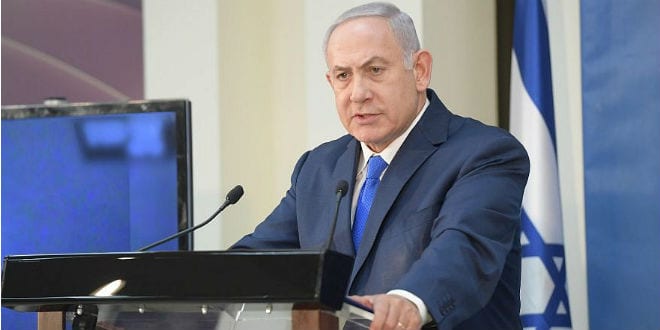About a week before yet-another Knesset election – the fourth in two years – Israeli Arabs assert that they feel an integral part of the Israeli citizenry.
A comprehensive survey just carried out by the Konrad Adenauer Program for Jewish-Arab Cooperation at the Moshe Dayan Center for Middle Eastern and African Studies at Tel Aviv University, in conjunction with the Konrad Adenauer Stiftung, found that 87% of Israeli Arab voters support joining the government or supporting it from the outside. It also appears that as Election Day approaches, there is a growing intention on the Arab street to participate in the elections.
According to the survey, 82.5% of the respondents have decided to vote in the elections, as opposed to 17.5% who do not intend to vote or have still not decided whether to vote. However, by weighting the survey findings based on past experience, which includes among other things the voting patterns of respondents in previous Knesset elections, the rate of voter turnout among Arab voters in the 24th Knesset elections is expected to be 59.7%.
This figure is somewhat lower than in the 23rd Knesset elections held in March 2020 (when it was 64.8%) and will be similar to that in the 22nd Knesset elections held in September 2019 (59.2%).
The shortcode is missing a valid Donation Form ID attribute.
About one-half of the respondents (46.0%) expressed support for seeing an Arab party join any government to be formed after the elections, while 18.0% stated that they would support joining only a center-left coalition. In addition, 21.3% were in favor of an Arab party supporting the government from the outside (to block no-confidence motions) in exchange for benefits for the Arab community. Only 13.0% of the respondents declared that they would not support an Arab party joining the government or supporting it from the outside under any circumstances.
Forecasted support of the parties from the Arab community (in seats) were the Joint List, likely to win 8.3 seats from Arab voters; the United Arab List, headed by Mansour Abbas, will win four and the Likud, headed by Netanyahu, will win 1.6 seats. Meretz, Yesh Atid and “Ma’an – Together” (headed by Mohammad Darawshe) are expected to receive one-half of a seat each, which is not enough to win a place in the Israeli parliament.
As many as 10% said that there was no qualified politician for whom to vote for the position of prime minister. Of those who did name a candidate to lead the country was Benjamin Netanyahu (24.9% of the respondents), followed by Ahmed Tibi (14.3%); Yair Lapid (13.9%); and Ayman Odeh (11.7%). Other candidates are Mansour Abbas (4.7%); Gideon Sa’ar (4.6%); and Benny Gantz (2.4%).
The most important issue for the Arab voting public was the implementation of a plan, announced by the Likud-led government just last month, to combat violence in Arab society (58.6% of the respondents). This provides the background for the low level of confidence (1.9 on a scale of 1 to 5) that the government will indeed implement the plan that it announced last month.
The most pressing issue for the Arab members of Knesset (MKs) to focus on following the elections is the implementation of the government plan to combat violence in Arab society (58.6% of the respondents), which provides the background for the low level of confidence (1.9 on a scale of one to five) that the government will indeed implement the plan that it announced last month.
Other important issues include the amendment of discriminatory laws such as the Nation-State Law and the Kamenitz Law )enacted in 2017 to combat illegal construction; an amendment to the Planning and Building Law that makes more severe the punishment against construction offenders and allows for the issuance of demolition orders without conducting a criminal proceeding and therefore without having to go to court, 16.9%). Other issues were a new program for the economic development of Arab towns (8.8%) and the integration of young Arabs within the labor market and in higher education (7.4%).
In a refreshing stance, a large majority (82.5%) of the respondents are in favor of Arab women playing a central role in the political arena. However, only 5.8% of the respondents stated that the inclusion of women – not necessarily Arab women – in realistic spots on a party’s list is the most important consideration in their choice of party.
Nearly a half of Israeli Arabs (48.5%) were convinced that increasing the number of Arab parties running in the elections, in addition to the Joint List, would not contribute to Arab politics. In contrast, 24.1% are convinced that the dispersion in the map of Arab parties contributes to Arab politics.
The main consideration of respondents who intend to vote in the coming elections is that the fundamental right to vote should be exercised (41.2%). Other considerations include the feeling that voting provides hope for a better future (19.8%), an expression of confidence in the voter’s representatives (16.4%), the belief that voting has an influence on the political situation (14.6%) and the fear that if the number of Arab citizens who vote declines the Arab parties will not reach the minimal threshold (8.0%).
In contrast, the respondents who stated that they do not intend to vote or have not yet decided whether to vote gave two main reasons for doing so – the crisis in the Joint List, which led to the withdrawal of Ra’am (35.8%) and the feeling that the Arab MKs in any case will not be able to further the interests of the Arab community (34.4%). Other reasons include the feeling that there is no party or candidate that represents the Arab voter (14.9%), a lack of interest in the elections (12.4%) and a fundamental opposition to participating in elections for the Knesset (2.5%).
The shortcode is missing a valid Donation Form ID attribute.




